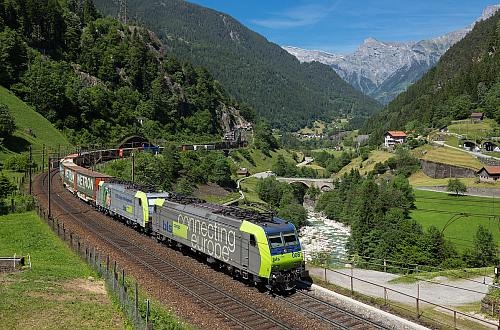The drop of 4% in transit traffic on its main route, the Lötschberg/Simplon, to 11,656 was compensated by a 41% increase in transit traffic on the Gotthard route to 2649 trains as well as a 55% rise in inland traffic to 3920 trains due to increased oil transport.
As a result operating revenue increased by 2% to SFr 170.4m ($US 170.5m) compared with SFr 166.9m in 2014, while Ebit fell by 48% to SFr 2.1m. And despite the severe effect of the strong Swiss franc against the euro in the past year, and the low cost of diesel, the company still reported a net profit of SFr 0.3m, which was down from SFr 2.5m in 2014.
BLS credits its success to new direct-contact customers as well as focusing on cost management and introducing innovative fleet management concepts.
"We feel BLS Cargo enjoys a high level of acceptance and credibility," says BLS CEO Mr Dirk Stahl. "It is of value to our customers that we operate autonomously, and generate creative and innovative ideas for new traffic concepts."
However, Stahl admits that in the future the market will continue to be challenging with increasing pressure on prices and the high cost of conforming with more stringent regulations and other administrative requirements for railfreight operators.
With regards to the forthcoming opening the Gotthard base tunnel in June this year, while Stahl welcomes the opportunities this offers he does not expect any significant improvement until 2021 when the Ceneri base tunnel opens and the 4m corridor comes on line.

